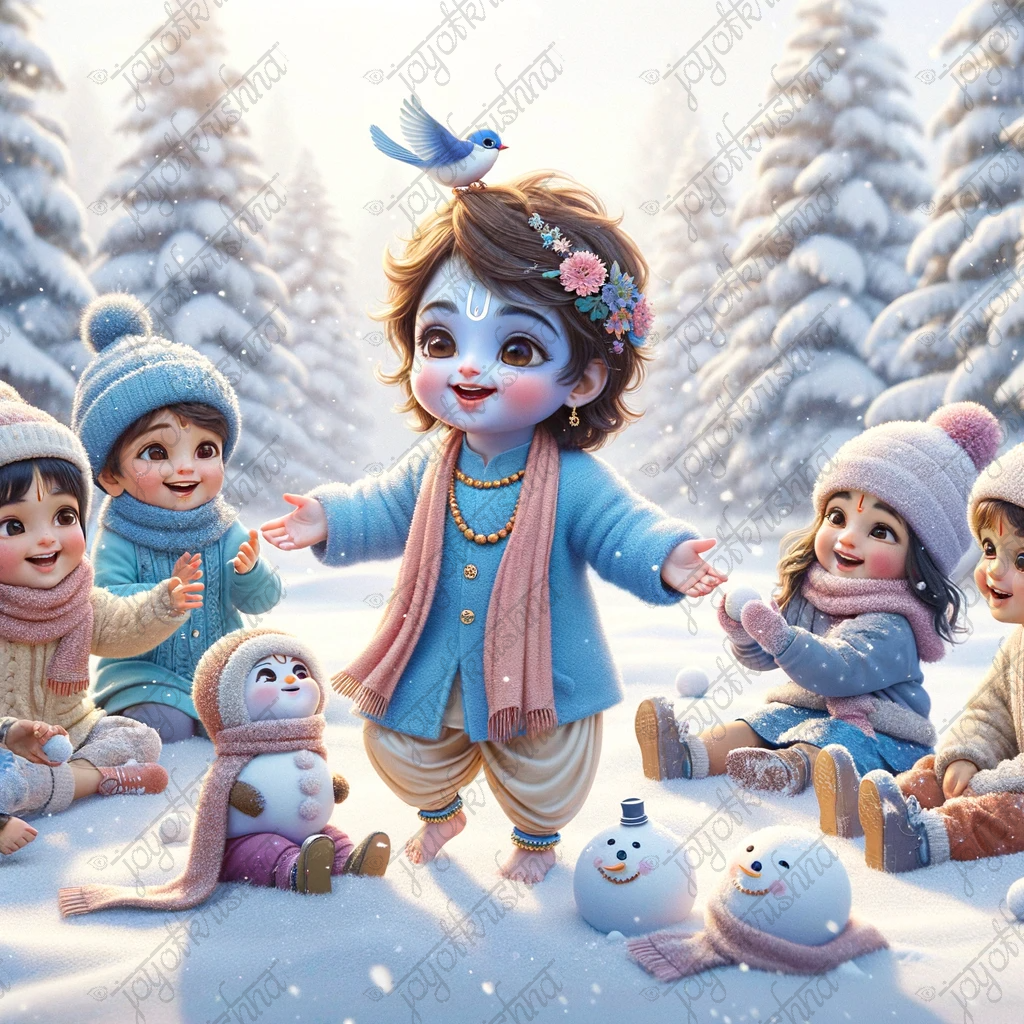
In the realm of Hindu mythology, one name that resonates deeply with devotees is that of Lord Krishna, the eighth avatar of the Supreme God, Vishnu. Born in the city of Mathura, Krishna’s arrival on this earth was marked by a series of extraordinary events, each signifying his divine presence. As the legend goes, Krishna’s birth was foretold by the celestial beings, who proclaimed that he would be the one to bring an end to the reign of the tyrannical King Kamsa, his maternal uncle. Fearing his own demise, Kamsa had imprisoned Krishna’s parents, Vasudeva and Devaki, and had ordered the killing of all newborn babies in the city. However, on the night of Krishna’s birth, a miracle unfolded as the prison gates opened, and Vasudeva, guided by a divine force, carried his newborn son across the Yamuna River to the safety of a nearby village, Gokul. There, Krishna was lovingly raised by his foster parents, Nanda and Yashoda, amidst the picturesque surroundings of the Indian countryside.
As Krishna grew up, his divine nature became increasingly evident. His mischievous pranks and escapades, which often left his foster parents bewildered, were, in fact, a manifestation of his supreme power. Whether it was stealing butter from the village women or frolicking with the cows in the meadows, Krishna’s every action was infused with a deep sense of love and compassion. His enchanting smile and mesmerizing flute-playing skills captivated the hearts of all who surrounded him, and his presence seemed to bring an unparalleled sense of joy and tranquility to the village. However, Krishna’s idyllic life in Gokul was not without its challenges. The demonic forces, led by King Kamsa, were relentless in their pursuit of him, and it was not long before Krishna’s divine prowess was put to the test.
The tales of Krishna’s bravery and valor are legendary. From subduing the serpent, Kaliya, which had terrorized the village, to defeating the mighty demon, Putana, who had attempted to kill him, Krishna’s victories were a testament to his invincible spirit. His divine wisdom and counsel, as revealed in the Bhagavad Gita, one of the most revered scriptures in Hinduism, continue to guide seekers of truth to this day. And yet, despite his exalted status as a divine being, Krishna remained humble and accessible, ever willing to offer his love and guidance to all who sought him. His selfless love for his devotees, as exemplified in his relationship with the gopis, the village women who adored him, is a shining example of the transformative power of divine love.
Throughout the ages, Krishna’s legend has inspired countless works of art, literature, and music, each attempting to capture the essence of his divine nature. From the intricate carvings on the temple walls of Mathura to the poetic verses of the Bhakti movement, Krishna’s presence continues to permeate every aspect of Indian culture. His birthday, celebrated as Janmashtami, is a joyous occasion, marked by festivities and devotional songs, as devotees from all over the world come together to pay homage to the beloved Lord. And as we reflect on the life and teachings of Krishna, we are reminded of the profound impact that one being can have on the world, and the enduring power of love and compassion to transform our lives.